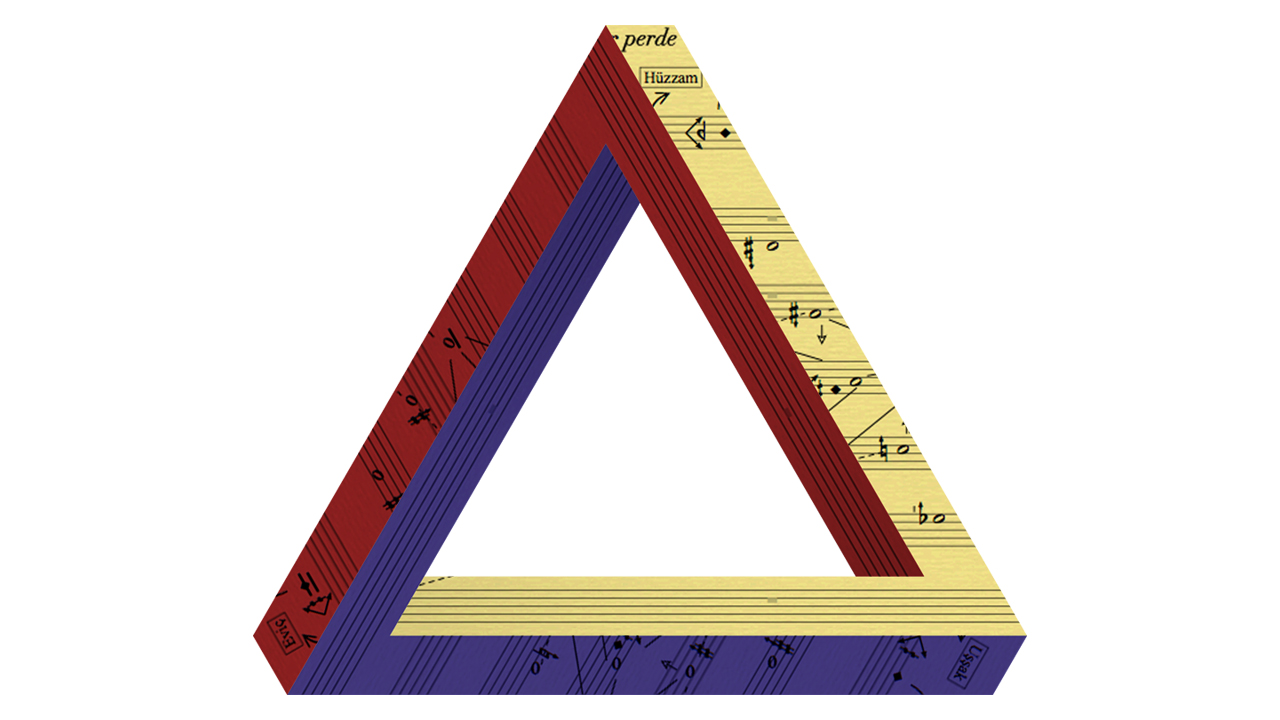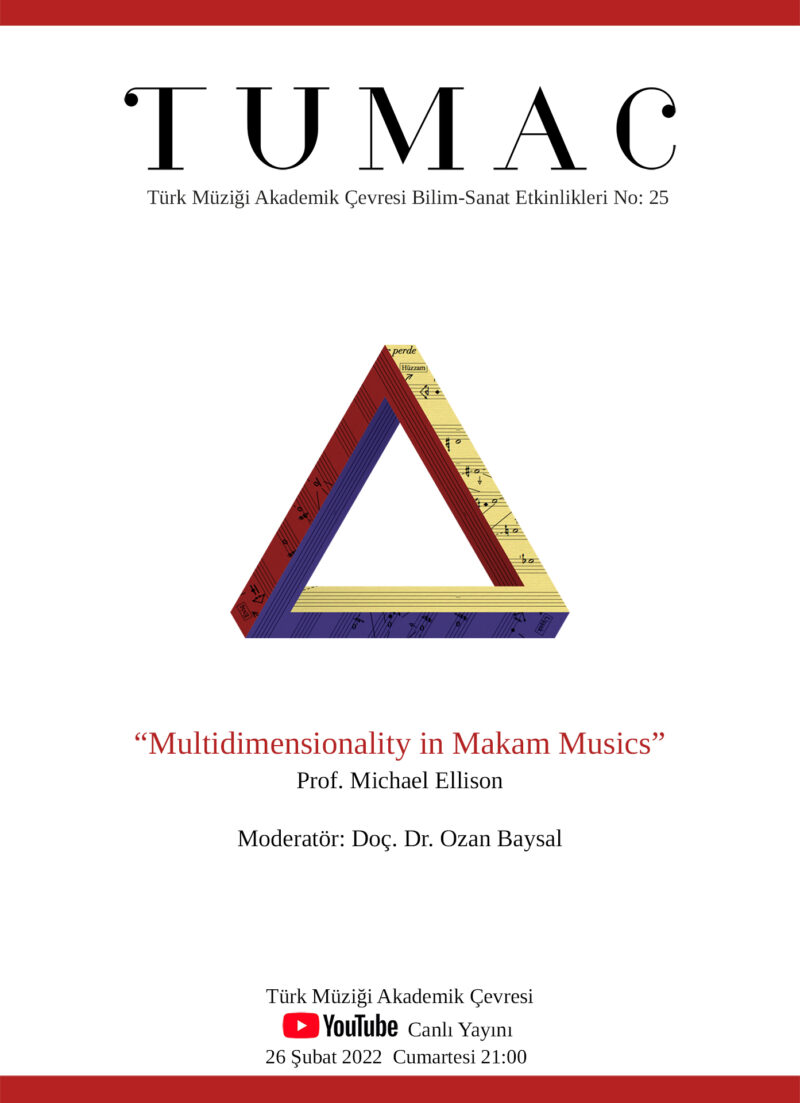
Bu etkinlik geçti.

TUMAC BSE No.25: “Multidimensionality in Makam Musics” – Prof. Michael Ellison
26 Şubat 2022 / 21:00 - 22:30
Türk Müziği Akademik Çevresi Bilim-Sanat Etkinlikleri, Bristol Üniversitesi Kompozisyon Bölümü’nde öğretim üyesi Prof. Michael Ellison’ın “Multidimensionality in Makam Musics” başlıklı İngilizce sunumuyla devam ediyor. 26 Şubat 2022 Cumartesi günü saat 21:00’da (UTC+3) gerçekleşecek etkinlik, İstanbul Teknik Üniversitesi Türk Müziği Devlet Konservatuarı Müzikoloji Bölümü Öğretim Üyesi Doç. Dr. Ozan Baysal’ın moderatörlüğünde TUMAC Youtube kanalından canlı yayınlanacak.
TUMAC Youtube canlı yayın linki için tıklayınız.
SUNUM HAKKINDA
This presentation offers two perspectives from my recent work on makam music, which, though derived from an ‘etic’, composers’ perspective, may lead to better listening and enhanced understanding of makam musics. The first topic regards dimensions of sound. I argue that, far from being ‘monophonic’ or ‘heterophonic,’ makam music works with a variety of timbral, dynamic, and dimensions of which ‘sculpt’ lines which are ostensibly melodic. Most of these timbrally-oriented elements are considered part of tavır, and as such are left unnotated. This has led to their neglect in theoretical and musicological discourse, despite the fact they are integral to the sound of makam musics, and are probably the most challenging aspect of makam-based musics to learn. This talk foregrounds them as absolutely essential to the identity of makam itself. The second topic introduces a new way to simplify conceptions of tuning in makam, classifying all perde, çesni, and makams into three ‘orders’, based on three types of derivations from the perde generating all others, Rast. ‘First order’ tetrachords are Pythagorean, and 5ths based; ‘second order’ are just-intonation derived. Taking comments of Necdet Yasar (in Signell) as a starting point, the ‘third order’ comprises ‘Ussak-genus’ perde/pitch zones, created through intentional instability, expressiveness, blurring and distortion added to pitches notated as second order in Ezgi-Arel theory. These ‘perde’ also tend to behave more as zones than as stable pitches. The concept of grouping is especially useful for this third order, in that it brings together a number of perdes not notated or generally recognised as being related. Potential advantages gained by recognising these broader categories are then explored.
Prof. Michael Ellison
The music of Michael Ellison seamlessly integrates contemporary and traditional influences into a unique and personal idiom. His first opera, Mevlâna-Say I am You (Rotterdam Operadagen and Istanbul Music Festivals, 2012) broke new ground, achieving an unprecedented level of integration of Turkish traditional instruments into contemporary music—a direction his second opera, Deniz Küstü (Istanbul Music Festival, 2016, Jones/Tanbay/NOHlab) extended. Ellison has been commissioned and performed by BBC Symphony Orchestra, Ensemble Variances, Acht Brücken Festival Cologne, Radio France, Aspects des musiques d’aujourd’hui, Grenoble Festival, New York Youth Symphony, Siemens Foundation, Nova Chamber Music Series, amongst many others. He is Principal Investigator on the European Research Council project Beyond East and West: Developing and Documenting an Evolving Transcultural Musical Practice (2015-2022) https://www.beyondeastandwest.org/, the PI of AHRC-Istanbul Development Agency supported project Transtraditional Istanbul. Ellison is Professor of Composition at the University of Bristol (UK) and co-founder and co-director of Turkey’s leading contemporary music group, Hezarfen Ensemble.
Afiş tasarımı: Orçun Güneşer
Kaynak görsel: Michael Ellison (©2022)
Yayın sorumlusu: Serkan Günalçin


Yorum Bırak